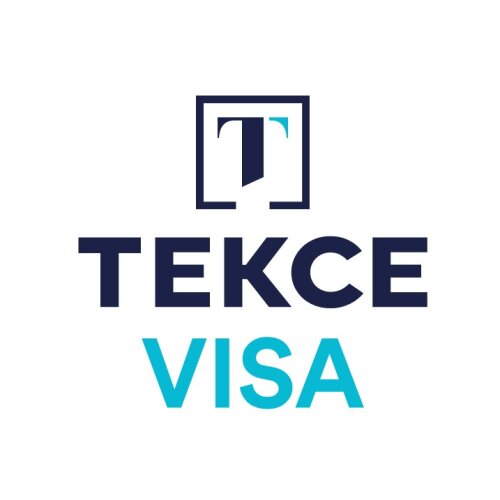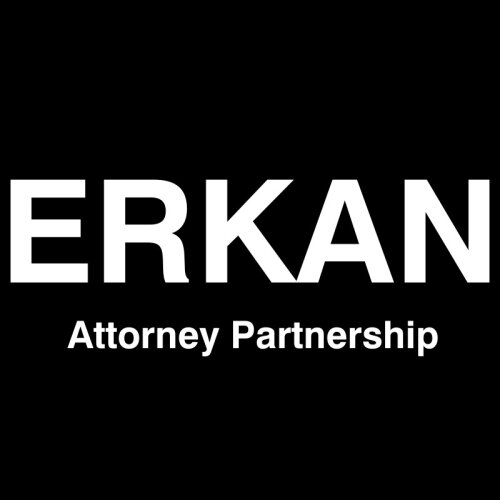Best Real Estate Due Diligence Lawyers in Ankara
Share your needs with us, get contacted by law firms.
Free. Takes 2 min.
Free Guide to Hiring a Real Estate Lawyer
List of the best lawyers in Ankara, Turkey
About Real Estate Due Diligence Law in Ankara, Turkey
Real estate due diligence in Ankara, Turkey, involves a comprehensive assessment process conducted by prospective buyers to verify important facts about a property before completing a transaction. This legal procedure is vital to ensure transparency, prevent fraud, and mitigate risks associated with property investments. In Ankara, the process typically involves examining property title deeds, zoning regulations, building licenses, and compliance with local laws and regulations to confirm legal ownership and ensure that the property is free from encumbrances.
Why You May Need a Lawyer
Engaging a lawyer for real estate due diligence in Ankara is essential in several situations:
- Legal Expertise: Lawyers have the necessary knowledge to navigate complex real estate laws, ensuring all documentation and procedures meet legal standards.
- Title Verification: A lawyer can verify the legitimacy of property title deeds and discover any existing liens or encumbrances that might affect ownership.
- Zoning and Land Use: Legal advice is crucial to understand zoning laws and land use restrictions to confirm that the property can be used for the intended purpose.
- Contract Review: Lawyers assist in reviewing and negotiating the terms of contracts to protect clients' interests, ensuring fair conditions and minimizing potential liabilities.
- Transaction Compliance: Legal professionals ensure adherence to procedural requirements, which helps in preventing future disputes or claims.
Local Laws Overview
Ankara's real estate laws encompass various regulations critical to due diligence:
- Title and Deed Registration: Title deeds must be registered at the local Land Registry Office, confirming ownership rights.
- Foreign Ownership: Laws stipulate limitations and conditions under which foreigners can own property in Turkey.
- Zoning Regulations: These rules outline permissible land and property use, affecting property development and real estate investments.
- Environmental and Construction Laws: Compliance with environmental regulations and obtaining required construction permits is mandatory to avoid legal issues.
- Tax Obligations: Understanding real estate transaction taxes, such as VAT and Title Deed Fee, is vital for financial planning.
Frequently Asked Questions
What is the purpose of real estate due diligence?
Real estate due diligence ensures that a property transaction is legally safe and that the buyer is aware of any potential legal, financial, or structural issues with the property.
How long does the due diligence process take in Ankara?
The duration can vary but typically takes a few weeks depending on the complexity of the property and the thoroughness of the investigation required.
Can foreigners buy property in Ankara?
Yes, foreigners can purchase property in Ankara, but there are specific conditions and restrictions that must be adhered to by foreign buyers.
What are the main documents checked during due diligence?
Key documents include title deeds, zoning regulations, building licenses, and any existing encumbrances or liens on the property.
Is title insurance necessary in Turkey?
While not legally required, title insurance can provide an added layer of protection against potential title defects or disputes.
What taxes are involved in real estate transactions?
Taxes include the Title Deed Fee, which is typically around 4% of the property value, and potential VAT, depending on the nature of the sale.
What happens if there are legal issues with the property?
If legal issues are discovered, negotiations with the seller, contract adjustments, or even withdrawing from the purchase may be necessary.
Is a lawyer mandatory for real estate transactions?
While not mandatory, hiring a lawyer is highly recommended to safeguard your interests and navigate complex legal procedures.
How can I verify the authenticity of property documents?
A lawyer can help verify document authenticity by liaising with relevant authorities and conducting a thorough due diligence process.
What are the risks of not conducting due diligence?
Neglecting due diligence can lead to unforeseen legal disputes, financial losses, inability to use the property as intended, or even loss of ownership.
Additional Resources
- General Directorate of Land Registry and Cadastre: The governmental body managing property records and title deeds.
- Ankara Bar Association: Provides listings of qualified real estate lawyers in Ankara.
- Turkish Ministry of Environment, Urbanization and Climate Change: Offers guidance on zoning and urban planning regulations.
Next Steps
If you require legal assistance for real estate due diligence in Ankara, consider contacting a qualified real estate lawyer to guide you through the process. Ensure to prepare a list of questions or concerns regarding the property to discuss during consultations. It's important to verify the lawyer's credentials and experience in real estate law to ensure competent legal advice and representation.
Lawzana helps you find the best lawyers and law firms in Ankara through a curated and pre-screened list of qualified legal professionals. Our platform offers rankings and detailed profiles of attorneys and law firms, allowing you to compare based on practice areas, including Real Estate Due Diligence, experience, and client feedback.
Each profile includes a description of the firm's areas of practice, client reviews, team members and partners, year of establishment, spoken languages, office locations, contact information, social media presence, and any published articles or resources. Most firms on our platform speak English and are experienced in both local and international legal matters.
Get a quote from top-rated law firms in Ankara, Turkey — quickly, securely, and without unnecessary hassle.
Disclaimer:
The information provided on this page is for general informational purposes only and does not constitute legal advice. While we strive to ensure the accuracy and relevance of the content, legal information may change over time, and interpretations of the law can vary. You should always consult with a qualified legal professional for advice specific to your situation.
We disclaim all liability for actions taken or not taken based on the content of this page. If you believe any information is incorrect or outdated, please contact us, and we will review and update it where appropriate.











